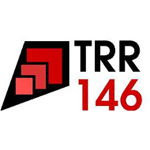
Seminar über Theorie der kondensierten Materie / TRR146 Seminar
Jan. 25, 2013 at
5 p.m.
in
Medien-Raum (Raum 03-431)
F. Schmid
friederike.schmid@uni-mainz.de
P. Virnau
virnau@uni-mainz.de
L. Stelzl
lstelzl@uni-mainz.de
Note: Sondertermin: Medienraum, 17 Uhr
Quantification of correlations in quantum many-particle systems
Dieter Vollhardt (Institut für Physik, Universität Augsburg)
The concept of correlations is, by definition, a relative one since it always requires the comparison with some reference system. However, any quantification of the degree of correlation of a quantum system which compares the expectation value of a particular set of operators will necessarily be biased. This raises a fundamental question: Is there an unbiased method to quantify the correlations of a quantum many-particle system, which even allows one to compare the correlation strength of quite different systems? I will show that quantum information theory, namely the relative von Neumann entropy computed from the density matrix of correlated and uncorrelated states, provides an unbiased measure of the strength of correlations in quantum many-particle systems [1]. The usefulness of this approach is demonstrated by quantifying correlations of interacting electrons in the Hubbard model as well as in a series of transition-metal oxides (MnO, FeO, CoO, NiO) using dynamical mean-field theory (DMFT) and LDA+DMFT, respectively.
<p>[1] Krzysztof Byczuk, Jan Kuneš, Walter Hofstetter, and Dieter Vollhardt, Phys. Rev. Lett. 108, 087004 (2012).